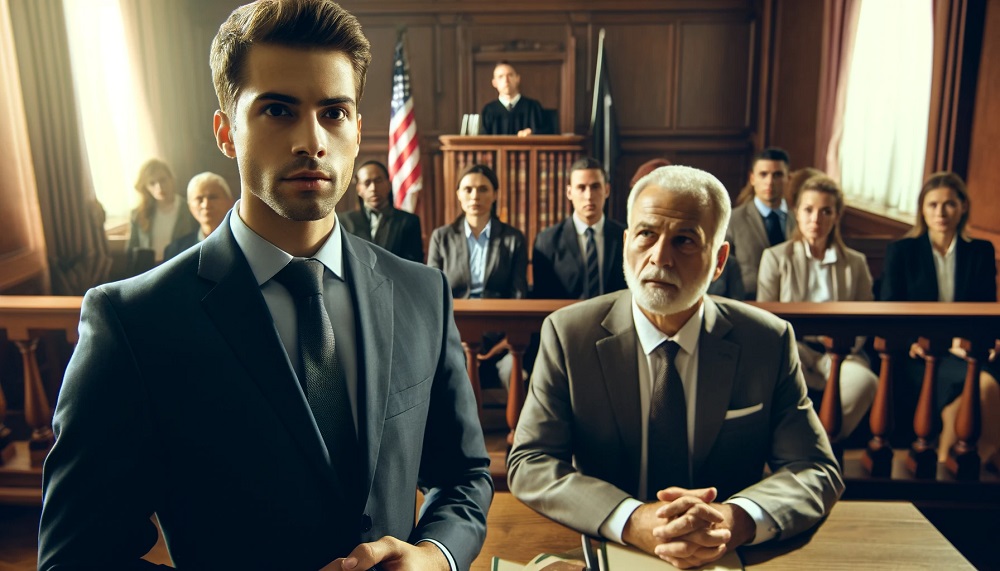Civil Rights Attorney: Championing Justice for All

In the realm of law, few roles are as impactful as that of a civil rights attorney. These dedicated legal professionals strive to ensure that every individual receives equal treatment under the law, regardless of race, gender, religion, or other characteristics. Their work is critical in combating discrimination and promoting social justice, making them true champions of fairness and equality.
The Role of a Civil Rights Attorney
A civil rights attorney specializes in cases involving the infringement of individuals’ rights and liberties. They handle a wide array of issues, including:
- Discrimination: Addressing cases where individuals are treated unfairly based on race, gender, age, disability, or sexual orientation.
- Police Misconduct: Representing victims of excessive force, wrongful arrests, or other forms of police abuse.
- Freedom of Speech: Defending individuals whose rights to express themselves freely have been violated.
- Voting Rights: Ensuring that all citizens have equal access to the voting process without discrimination or undue barriers.
Civil rights attorneys play a crucial role in not only representing their clients in court but also in advocating for legislative changes to enhance and protect civil rights. In cases involving wrongful accusations of serious offenses, such as sexual misconduct, securing the Best Sex Crime Defense Attorney can be vital in ensuring that the accused receives a fair trial and their rights are protected
Navigating Complex Legal Waters
The legal landscape of civil rights is intricate and ever-evolving. A skilled civil rights attorney must be well-versed in federal and state laws, including the Civil Rights Act, the Americans with Disabilities Act, and the Equal Protection Clause of the Fourteenth Amendment. Their expertise allows them to navigate these complex waters effectively, ensuring that justice is served.
In many cases, civil rights attorneys work alongside other legal specialists to provide comprehensive support to their clients. For example, in cases of police misconduct, collaboration with a personal injury attorney may be necessary to address physical or psychological harm suffered by the victim.
Advocates for Change
Beyond the courtroom, civil rights attorneys are often at the forefront of social change. They engage in public speaking, participate in community outreach programs, and work with advocacy groups to raise awareness about civil rights issues. Their efforts help to educate the public and influence policy changes that promote equality and justice.
The Importance of Legal Representation
For individuals facing civil rights violations, having a knowledgeable and dedicated attorney is essential. A civil rights attorney provides more than just legal representation; they offer a voice to those who may feel powerless against larger entities such as corporations or government bodies.
Consider the case of a car accident attorney who might encounter a situation where a client’s rights have been violated during an incident. A civil rights attorney can step in to address any discriminatory practices or rights infringements that may have occurred, ensuring that the client’s case is handled with the utmost fairness and justice.
Landmark Cases and Their Impact
The history of civil rights law is marked by numerous landmark cases that have shaped the legal landscape and advanced the cause of justice. Cases such as Brown v. Board of Education, which ended racial segregation in public schools, and Obergefell v. Hodges, which legalized same-sex marriage nationwide, highlight the profound impact civil rights attorneys can have on society.
These cases serve as powerful reminders of the importance of legal advocacy in the fight for equality. They also underscore the need for continuous vigilance and action to protect and expand civil rights for all individuals.
The Future of Civil Rights Advocacy
As society continues to evolve, so too does the field of civil rights law. Emerging issues such as digital privacy, LGBTQ+ rights, and immigration policies present new challenges and opportunities for civil rights attorneys. Their ability to adapt and address these issues is critical in ensuring that all individuals enjoy the full spectrum of rights and freedoms promised by the law.
The Challenges Facing Civil Rights Attorneys
While the work of civil rights attorneys is profoundly impactful, it is not without its challenges. These attorneys often face significant obstacles, including:
- Resource Constraints: Civil rights cases can be resource-intensive, requiring extensive research, evidence gathering, and expert testimony. Many civil rights attorneys work in non-profit organizations or small firms with limited funding, making it challenging to sustain long-term legal battles.
- Political Opposition: Advocacy for civil rights often involves confronting entrenched systems of power and privilege. This can lead to significant political pushback and efforts to undermine or roll back civil rights protections.
- Emotional Toll: Representing clients who have suffered severe injustices can be emotionally draining. Civil rights attorneys must navigate their own emotional well-being while providing compassionate support to their clients.
Despite these challenges, civil rights attorneys remain steadfast in their commitment to justice. Their resilience and dedication ensure that even in the face of adversity, progress continues.
Empowering the Next Generation
Education and mentorship are critical components of sustaining and advancing civil rights advocacy. Experienced civil rights attorneys often take on the role of mentors, guiding new attorneys and law students passionate about civil rights. They provide invaluable insights and support, helping to cultivate a new generation of legal professionals committed to social justice.
Law schools and legal organizations also play a pivotal role by offering specialized courses and training programs in civil rights law. These programs equip future attorneys with the knowledge and skills needed to tackle complex civil rights issues effectively.
Community Involvement and Support
Civil rights attorneys often work closely with communities to understand their needs and advocate for their rights. Community involvement is essential for identifying systemic issues and developing effective legal strategies. Grassroots movements and community organizations frequently collaborate with civil rights attorneys to amplify their voices and drive meaningful change.
Public support is also crucial for the success of civil rights initiatives. Individuals can contribute by staying informed about civil rights issues, participating in advocacy efforts, and supporting organizations that champion justice and equality.
Conclusion: The Indispensable Role of Civil Rights Attorneys
Civil rights attorneys are the vanguards of justice, working tirelessly to ensure that every individual is treated equitably under the law. Their role is indispensable in challenging discrimination, advocating for systemic change, and protecting the rights of the marginalized and oppressed.
Through their unwavering dedication, civil rights attorneys help to create a more just and inclusive society. Their work not only addresses immediate injustices but also lays the foundation for a future where equality is not just an ideal but a lived reality for all.
As society continues to evolve, the need for skilled and passionate civil rights attorneys will remain critical. Their efforts remind us that the pursuit of justice is ongoing and that each step toward equality brings us closer to a world where every person’s rights are fully recognized and respected.












